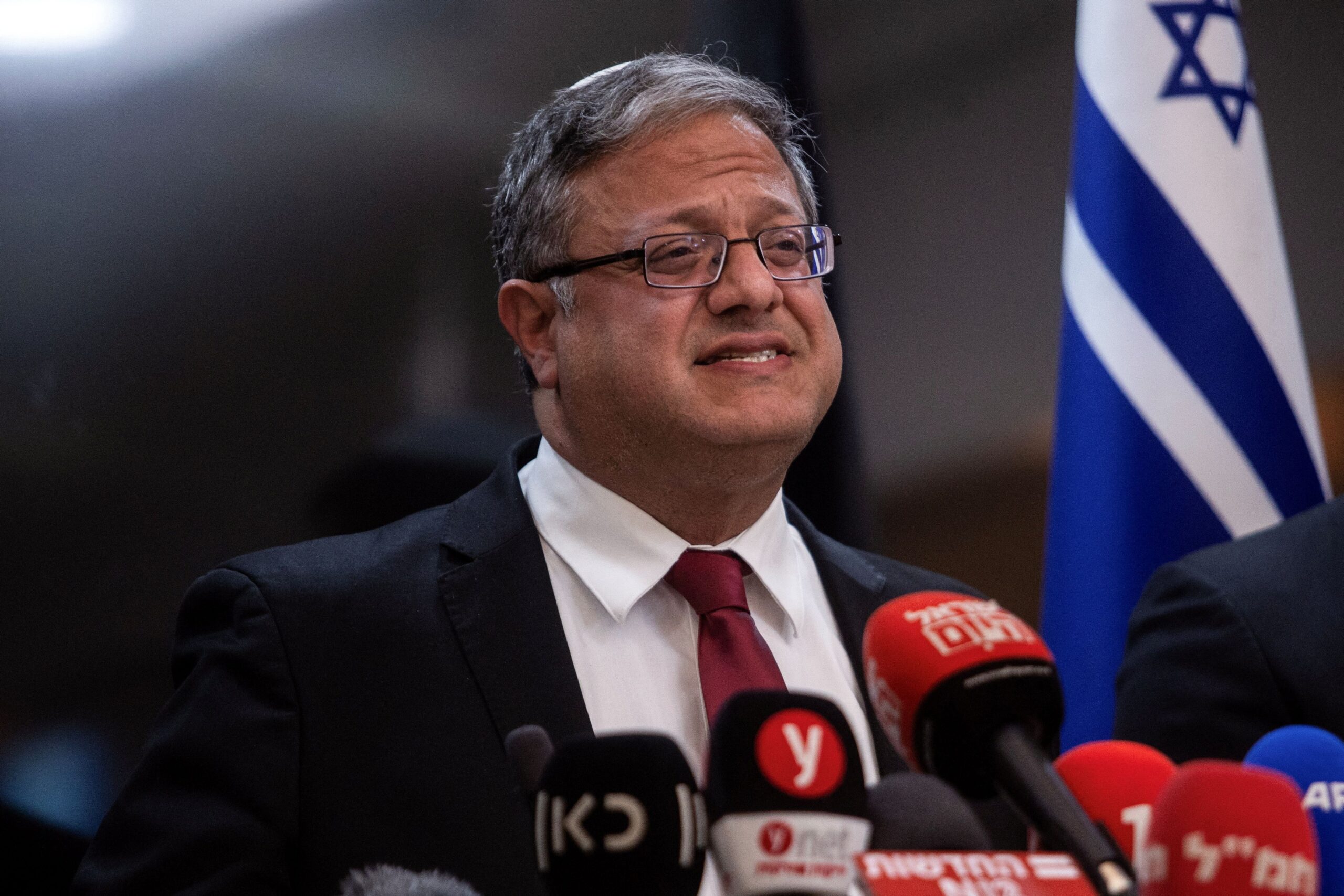LONDON (Reuters) -Britain and four other nations on Tuesday imposed sanctions on two far-right Israeli ministers, Itamar Ben-Gvir and Bezalel Smotrich, accusing them of repeatedly inciting violence against Palestinians in the West Bank.
Canada, Australia, New Zealand and Norway joined Britain in freezing the assets and imposing travel bans on Israel’s national security minister Ben-Gvir – a West Bank settler – and finance minister Smotrich.
“Itamar Ben-Gvir and Bezalel Smotrich have incited extremist violence and serious abuses of Palestinian human rights. These actions are not acceptable,” British foreign minister David Lammy, along with the foreign ministers of Australia, Canada, New Zealand and Norway said in a joint statement.
“This is why we have taken action now to hold those responsible to account,” the statement said.
Two sources with direct knowledge of the matter said that the sanctions included targeted financial restrictions and travel bans.
Israel’s foreign minister, Gideon Saar, said the move was “outrageous” and the Israeli government would hold a special meeting early next week to decide how to respond to the “unacceptable decision”.
Smotrich, speaking at the inauguration of a new settlement in the Hebron Hills, spoke of “contempt” for Britain’s move.
“Britain has already tried once to prevent us from settling the cradle of our homeland, and we cannot do it again. We are determined God willing to continue building.”
As the five nations announced action against the Israeli ministers, the United States instead said it would sanction individuals and sham charities that provided financial support to Hamas and another Palestinian group.
‘EGREGIOUS’
Last month, the leaders of Britain, France and Canada put pressure on Israeli Prime Minister Benjamin Netanyahu’s government to end the blockade on aid into Gaza, where international experts have said famine is imminent, promising “concrete action” if a new military offensive did not stop.
London also suspended free trade talks with Israel for pursuing “egregious policies” in the occupied West Bank and Gaza, and announced further sanctions against West Bank settlers.
In response, Netanyahu accused them of wanting to help Hamas and “being on the wrong side of history”.
The joint statement said Tuesday’s action was focused on curbing violence by Israeli settlers in the West Bank and was aimed solely at individuals who “undermine Israel’s own security”. But it added the measures could not be seen in isolation of events in Gaza.
“We continue to be appalled by the immense suffering of civilians, including the denial of essential aid,” it said. “There must be no unlawful transfer of Palestinians from Gaza or within the West Bank, nor any reduction in the territory of the Gaza Strip.”
The foreign ministers said they still wanted “a strong friendship with the people of Israel based on shared ties, values and commitment to (its) security and future”.
“We will strive to achieve an immediate ceasefire in Gaza, the immediate release of the remaining hostages by Hamas, which can have no future role in the governance of Gaza, a surge in aid and a path to a two-state solution,” the statement said.
Ben-Gvir and Smotrich have previously clashed with Netanyahu, both calling for the permanent conquest of Gaza and re-establishment of the Jewish settlements there that Israel abandoned in 2005, notions that the Israeli leader rejected.
Israel began its offensive in Gaza in response to the Hamas-led attack on southern Israel in October 2023 that killed 1,200 people, mostly civilians, according to Israeli tallies, and saw 251 people taken as hostages into Gaza.
Israel’s campaign has devastated much of Gaza and killed more than 54,000 Palestinians, according to Gaza health authorities.
(Reporting by Sachin Ravikumar; Additional reporting by Alexander Cornwell in Tel Aviv; writing by Muvija M and Elizabeth Piper, Editing by Kate Holton and Michael Holden)
By Elizabeth Piper and Sachin Ravikumar

